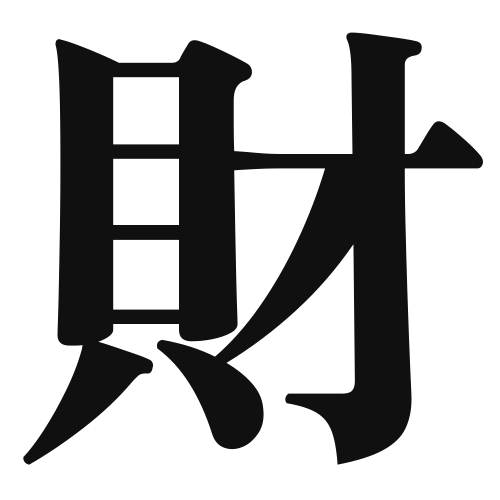1. Overview of Meaning
The kanji 財 (zai) primarily means “wealth” or “resources.” It refers to material possessions, financial assets, and the concept of abundance in general.
2. Formation and Radical
The kanji 財 is a compound character, which means it is formed by combining different elements. It consists of the radical 貝 (shell), which is often associated with money and valuables, and the phonetic component 才 (sai), which can imply talent or ability.
3. Examples of Usage
Common words and phrases that include 財 are:
- 財産 (zaisan) – property, assets
- 財政 (zaisei) – finance, fiscal policy
- 財務 (zaimu) – financial affairs
Example sentence in daily conversation:
「彼は大きな財産を持っています。」 (Kare wa ookina zaisan o motteimasu.) – “He has a large fortune.”
4. Synonyms and Antonyms
Similar kanji with related meanings include:
- 富 (fu) – wealth, riches (often implies a greater abundance than 財)
- 資 (shi) – resources, capital (more focused on the means to generate wealth)
Antonyms include:
- 貧 (hin) – poverty, lack of wealth
5. Cultural and Historical Background
The concept of 財 is deeply rooted in Japanese culture, where wealth and prosperity are often associated with success and social status. Traditional proverbs and idioms reflect this connection:
- 財は心の豊かさにある (Zai wa kokoro no yutakasa ni aru) – “Wealth lies in the richness of the heart.”
- 金は天下の回りもの (Kane wa tenka no mawari mono) – “Money circulates in the world,” emphasizing the transient nature of wealth.
